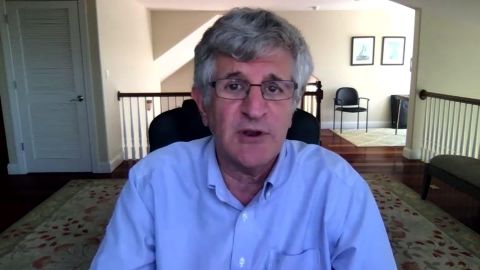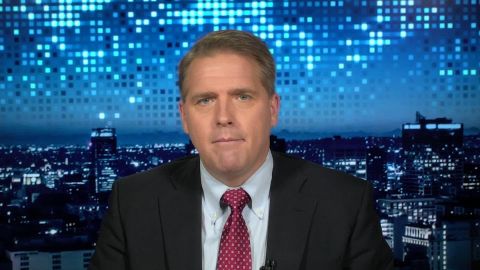Read Transcript EXPAND
CHRISTIANE AMANPOUR: Yet again the president, at his own convention in front of presumably his own voters, is casting aspersions on what might be the main way to cast your ballot this election cycle. Why would he keep doing that?
SCOTT JENNINGS, REPUBLICAN STRATEGIST: Well, he has a healthy skepticism of what some Democrats say they want to do, which is have universal mail-in balloting which is actually different than absentee balloting, which is how a lot of people are going to wind up casting their ballots, and in fact, how he and members of his family have cast their ballots. I think where the lines get blurred here is that Republicans culturally have been sort of an election day party. There’s states out West where that’s not true, but by and large, it’s been an election day party day, they like to vote on election day. They haven’t embraced early voting. They haven’t embraced mail-in voting the way Democrats have. And there are also views on the Republican side that some Democrats want to go to a huge mail-in system where everyone gets a ballot whether you request it or not. So, there’s — I think there’s a lot of different strains of this topic that get conflated with each other. My advice to the president would be, look, a lot of states that don’t normally do this are going to wind up doing it more than usual, and you need every vote you can get. So, don’t talk your own people out of voting however they can.
AMANPOUR: You know what, I was just going to ask you that and you just answered the question. It does seem counterintuitive for his own voters, much less the others. So, can I just ask you another thing, because this is something others are worried about. Do you think, based on what he says, that if he loses and is not re-elected or if there is a gap between election night and however long it takes to finally tally the whole result, are you concerned that he would not leave office, that he would not leave the White House?
JENNINGS: No, I’m not concerned about that one bit. I think we’ll have an orderly transition of power just the way we always have in the United States, and I think people who are asserting this have been asserting a lot of things about him for the duration of his presidency, and I just — I find this to be highly unlikely and implausible. I am worried, though, you do raise the specter of us not knowing on election night who the president is. I think that’s incredibly likely because if you do have a lot of mail-in ballots, and it takes some time to count these things, we may have a lag period. Of course, we had one back in 2000, my first election back in the Bush v. Gore election. So, I do think we could have a lag. But no, I think we’ll have a president and everything will proceed as normal.
About This Episode EXPAND
Christiane speaks with Scott Jennings about what another four years of President Trump would bring. She also speaks with Dr. Paul Offit about convalescent plasma therapy and with Afua Hirsch about the consequences of Britain denying its imperial past. Michel Martin speaks with Beth Fukumoto about the racism that led to her resignation from the Republican Party.
LEARN MORE



